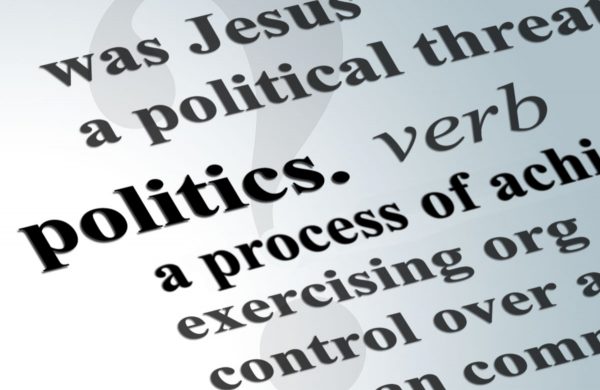Herod’s Perception
Shortly after Jesus was born, Herod killed all the boy babies in Bethlehem because he perceived this “King of the Jews” was a political threat. Was his perception correct?
According to the church calendar, a few weeks between Christmas and Easter – Epiphany – is the season we retell the story of wise men traveling from afar to worship the Christ child. According to Matthew’s narrative, Herod tried but failed to learn from the wise men the boy’s whereabouts, so he ordered a murderous rampage against all males two years and younger hoping his dragnet would take care of this problem.
Some say Herod’s ruthlessness is based on his misunderstanding of Jesus’ purpose in coming to pitch His tent among us in time. Jesus poses no political threat, they say. Didn’t Jesus say, “My Kingdom is not of this world?”
Others claim this is a misreading of Jesus’ mission. Peter Leithart, President of Theopolis Institute, wrote, “Herod was right. Jesus is a political threat . . . Jesus didn’t play politics by Herod’s rules. He changed the rules. He inspired new political hopes and new forms of political action. He taught a politics of truthful witness, justice, and mercy, rather than one of fear, violence, and vengeance.”1
Which is Correct?
Did Jesus purpose to inaugurate a new form of political action to champion desirable virtues, or was Jesus’ mission altogether different? The confusion is largely due to nebulous use of the term “politics” when describing Jesus’ earthly mission.
Defining Politics
“Politics” has been broadly defined as “the activity through which people, make, preserve, and amend the general rules under which they live.” But this definition doesn’t account for a fundamental reality of all political systems. A more precise definition is needed to explain why political players across the spectrum – including Republicans, Democrats, Libertarians, Socialists, Communists, and Nazis – claim alignment with Jesus’ teachings while asserting that their political rivals barter in fear, violence, and vengeance. A functional definition of politics needs to account for activists throughout history who have used lofty rhetoric about their parties’ virtues, but whose lives and thinly-veiled agendas were hell-bent on defeating their political adversaries rather than reflecting the priorities of Jesus.
These consistent political behaviors demonstrate why politics has been classically understood as a process of achieving and exercising organized control over a human community, particularly a state.2 Political action – even activity that promotes “truth, justice, and mercy” – is inevitably linked to one group’s committed intention to amass power over others. Thus politics is always a team sport; individuals collect into parties because they have more power if they join together.
This definition of politics explains why our elected representatives on Capitol Hill vote almost unanimously along party lines on issues like The Affordable Care Act, DACA, and tax reform. Each party identifies itself as the champion for truth, justice, and mercy, but their members typically cast their votes as a block to achieve, maintain, or retain power. This also explains why so many well-intentioned faith-based entities that organize into power coalitions end up forfeiting the virtues they espouse.
Jesus’ Mission
So the proposal that Herod’s perception about Jesus was right . . . is wrong. Jesus showed and taught a way to live, but He did not teach “a politics of witnessing truth, justice, and mercy” since amassing power over others – for any virtuous reason – is not consistent with His reason for living and dying.
Of course, faithful followers of Jesus participate and lead in the political process. They have an essential role to advocate virtues including truth, justice, and mercy. But power is alluring, and discerning leaders on the political stage keep vigil over their vulnerable selves. And they are ever on guard against the grievous assumption that alignment with a specific political party is the fulfillment of Jesus’ mission. Jesus did not call people to any political system; rather, He called them to Himself.
1Peter J. Leithart. htttp://www.patheos.com/blogs/Leithart. January 8, 2018
2 https://www.macmillanihe.com/resources/sample-chapters/9780230363373_sample.pdf, p.2.

Leave a Reply